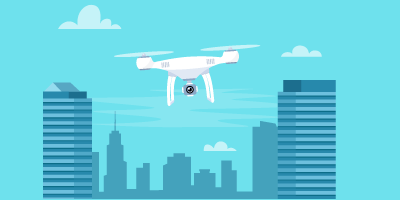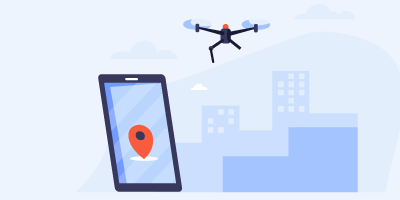As drones become more common all over the world, there is no denying some of the security risks that are possible when they get into the wrong hands. Security forces at the Pyeongchang Olympics are taking drones seriously by training their personnel with interceptor drones.
The security at the 2018 Winter Olympics is 60,000 people strong, not including special forces and aerial operations. Forces will be deployed daily throughout the games, armed with anti-drone technology and their own interceptor UAS. These sophisticated drones are specifically designed to disable and capture rogue aircraft. They are operated by well-trained pilots on the ground and are outfitted with strong nets. The net is fired at the target and the aircraft’s propellers become entangled, stopping the drone. The drone remains basically unharmed and can successfully be used to track the drone operator, and any other potential threats involved can be neutralized. They will also be using signal-jamming guns that force the drone to land or return to their home point.
Drones pose a threat to sporting events when the operator is not authorized to be flying in the area. While laws vary from country to country, in the U.S. it is currently against FAA regulations to fly over sporting events and crowds without first receiving authorization. Currently, it is very difficult to receive authorization to fly over people, and very few companies have been granted the required waiver. The requirement is not only in place for national security reasons, but liability reasons as well. Imagine being at Fenway Park enjoying the game, and a drone comes crashing down into the crowd or onto the field. Someone could get seriously injured.
It is exciting to see drones playing such an important role in securing the Winter Games. It is another fantastic example of how this amazing technology is creating an impact on our daily lives.
Related articles
6 Major Industries That Benefit from Drone Services
A look at how six major industries, such as real estate, eCommerce, and construction, can leverage the benefits of drone services.
Remote ID for Drones: All You Need to Know
In this blog post, we provide a guide to remote ID for drones, including how drone pilots can ensure compliance with the FAA remote ID rule.
Real Estate Drone Photography: Top 3 Benefits and Considerations
In this blog post, we’ll discuss the benefits of real estate drone photography & things realtors should look for when hiring a drone pilot.




